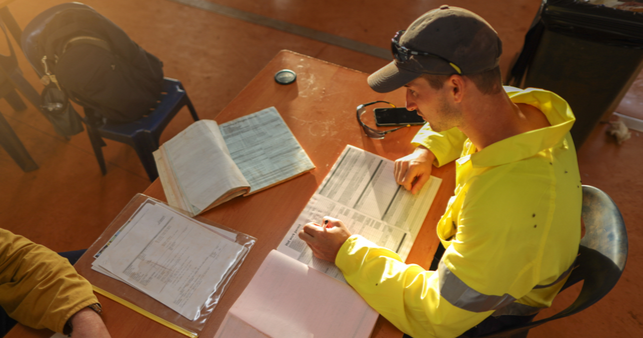
Have one of your employees been injured outside of work? Do you, as the employer, have an obligation to provide assistance to your employee?
YES!
When an employee is taking leave for the first week of a non-work accident, they can use sick leave and/or annual leave if any is available.
However, the law does not require an employer to keep an employee in employment who is unable to fulfil their role due to illness or injury or is unable to do their work. Prior to making a decision, an employer needs to understand how long the employee is likely to be off work and whether they’ll be able to do their job again.
To get this information, the employer should work in a positive and supportive way with their employee.
Employer obligations
Employers are required to provide appropriate support and assistance to their employees who suffer a non-work related injury/illness or medical condition.
Ensuring the injured worker can return safely to work as soon as possible and ensure they are not treated unfavourably because of their injury or illness.
Where practicable, employers should consider requests for an early return to work to assist employees.
Employers also have an obligation to keep an injured or ill worker’s position open.
If a worker is unable to perform their core duties, the employer is not expected to keep a position open indefinitely or make adjustments that cause unjustifiable hardship.
Definition
A non-work related injury/illness refers to an injury or illness that did not arise out of, or in the course of the workers employment and includes all workers’ compensation claims where liability has been denied by WorkSafe.
An injured worker includes a person with a temporary or permanent disability – physical or otherwise.
Legal requirements
In New Zealand it is against the law to discriminate against an employee because of an injury or illness, including a non work-related injury.
Discrimination in the workplace against an injured worker is against the law and employers are required to treat workers who are injured or ill fairly, regardless of whether the injury was sustained at work or outside the workplace.
Employers are also liable if staff members discriminate against each other because of injury or illness. The employee may say they are being discriminated against because they have a disability and they’re being treated differently from other employees.
ACC Employer Considerations and Obligations
The Accident Compensation Act 2001 ("the ACC Act") provides cover to people who suffer "personal injuries" caused by accidents. ACC operates on a similar basis to an insurance scheme through providing support to people who are unable to work following accidents.
The ACC scheme provides New Zealand citizens, residents, and temporary visitors to New Zealand with a form of statutory accident protection. In order to qualify for ACC cover a person has to meet the eligibility criteria under the ACC Act. Namely, they must have suffered a personal injury because of an accident like a broken arm playing sport, a laceration using a knife, or a sprain following a fall.
If an employee is off work due to a non-work-related injury, then they can use any paid sick leave, or annual leave entitlement for the first week of their absence. If they have no sick leave, or annual leave, then the period can simply be treated as unpaid sick leave. An employer can always choose to offer either of these to an employee in advance of their entitlement, which is not mandatory, or alternatively discretionary paid leave.
Return to Work (RTW)
Supporting an injured worker to return safely to work as quickly as possible is good for business productivity and supports equal opportunity good practice. It assists the worker to reduce the financial and emotional impact on themselves and their family and can be an important factor in helping them recover and return to normal life.
Following a period of absence from the workplace due to a non-work-related injury or illness, an employer has a duty to assist the injured worker with returning to work through a RTW arrangement. Some planning is essential to ensure a smooth return, and communication amongst all persons involved.
With any approved RTW arrangement, co-operation and consultation between management and the ill/injured employee is essential to ensure the health and safety of both the ill/injured employee and other employees in the workplace, and to ensure there is no risk of further injury or aggravation.
A RTW arrangement may not be granted where the medical condition is not temporary, and the associated (medical) restrictions and provision of suitable duties are onerous or impractical. An employer should:
Ensure the employee is given appropriate and meaningful duties and assistance.
Grant the employee enough time to recover from the injury or illness and apply a reasonable return-to-work plan with appropriate timeframes.
Make reasonable changes to the workplace or hours to help them return safely.
Consider workplace support aids or modifications to assist their return to work.
Ensure they are not treated unfairly, bullied, or harassed because of their injury/illness.
Consider any restrictions or limitations to the role – this will help clarify any modifications or adjustments required.
Any RTW arrangement must be based on sound risk management principles and on the assessment undertaken of the employee. Before returning an injured employee to work, an employer must consider their HSW obligations to ensure the continued health and safety of every employee and how they may be affected by the duties of an injured employee.
They also need to ensure they can provide a safe working environment for everyone that may be impacted by the duties of an injured employee, including other workers, contract staff, clients, and customers. The employer must assess the impact of the injury on the work tasks and any use of plant and equipment, what they can do safely and have a right to check with a doctor whether an employee can do their job safely.


